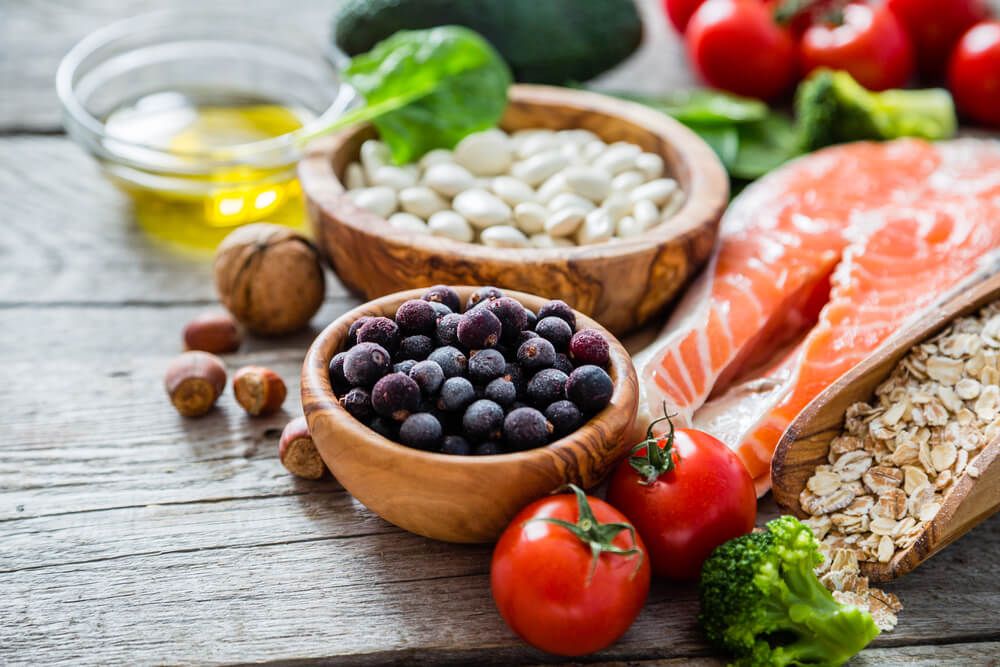Embarking on a journey toward weight loss can be both challenging and rewarding. With countless fad diets and food trends dominating the wellness space, it’s essential to prioritize wholesome, nutrient-dense foods that can support sustainable weight management. In this comprehensive guide, we’ll reveal the top foods for weight loss, highlighting their nutritional benefits and providing practical tips for incorporating them into your daily meals.
Prioritize Protein-Rich Foods
- Lean Meats – Lean meats, such as chicken, turkey, and fish, provide a rich source of protein while containing minimal saturated fat. Protein is an essential macronutrient that aids in muscle repair and growth, helping to maintain a healthy metabolism. By opting for lean cuts, you can enjoy the benefits of protein without the unwanted calories and fat.
- Legumes – Legumes, including beans, lentils, and chickpeas, are packed with plant-based protein and fiber. These two nutrients work in tandem to promote satiety, helping to curb hunger and prevent overeating. Legumes also boast a low glycemic index, which ensures a steady release of energy, keeping blood sugar levels in check.
- Greek Yogurt – Greek yogurt is a versatile, protein-packed option that can be enjoyed as a snack or incorporated into various dishes. Its thick, creamy texture makes it a satisfying alternative to full-fat dairy products. Opt for plain, unsweetened Greek yogurt and customize it with your favorite fruit, nuts, or seeds for a nutrient-dense, weight-loss-friendly meal.
Choose Fiber-Filled Foods
- Whole Grains – Whole grains, such as quinoa, brown rice, and whole wheat, are integral to a weight loss diet. They provide a steady source of energy, as well as a wealth of vitamins and minerals. Unlike refined grains, whole grains retain their natural fiber content, which helps promote a feeling of fullness, aids digestion, and supports a healthy gut microbiome.
- Fruits and Vegetables – Fruits and vegetables are the cornerstones of any healthy eating plan. Packed with essential vitamins, minerals, and antioxidants, they offer numerous health benefits while remaining low in calories. Prioritize colorful, nutrient-dense options like leafy greens, berries, and cruciferous vegetables. These foods are high in fiber and water content, making them ideal for weight loss.
- Nuts and Seeds – Nuts and seeds are a fantastic source of healthy fats, protein, and fiber. Although they are calorie-dense, their satiating properties make them an excellent addition to a weight-loss diet. Opt for raw, unsalted nuts and seeds, such as almonds, walnuts, chia seeds, and flaxseeds, to ensure optimal nutritional value.
Focus on Healthy Fats
- Avocado – Avocado is a unique fruit with heart-healthy monounsaturated fats that can support weight loss. Research suggests that these fats may help reduce abdominal fat and enhance satiety. Enjoy avocado in salads, smoothies, or as a creamy spread on whole-grain toast.
- Olive Oil – Olive oil is a staple in the Mediterranean diet, which is renowned for its health-promoting properties. This versatile oil is rich in monounsaturated fats and antioxidants, which may help reduce inflammation and support cardiovascular health. Incorporate olive oil into your cooking, drizzle it over salads, or use it as a dip for whole-grain bread.
- Fatty Fish – Fatty fish, such as salmon, mackerel, and sardines, are rich in omega-3 fatty acids, which have been linked to numerous health benefits, including weight loss. Omega-3s may help reduce inflammation, improve insulin sensitivity, and increase feelings of fullness. Aim to include fatty fish in your diet at least twice a week, either baked, grilled, or poached, for a delicious and nutritious meal.
Embrace Hydration
- Water – Proper hydration is crucial for overall health and weight management. Drinking water can help suppress appetite, increase metabolism, and aid digestion. Aim for at least eight glasses of water daily, and consider starting your day with a glass of water to jump-start your metabolism.
- Green Tea – Green tea is a natural, calorie-free beverage that offers various health benefits. Rich in antioxidants known as catechins, green tea has been associated with increased fat oxidation and improved metabolism. Sip on green tea throughout the day or enjoy it as a pre-workout beverage to support your weight loss journey.
Implement Mindful Eating Habits
- Portion Control – Understanding portion sizes is essential for weight loss success. Overeating, even healthy foods, can hinder your progress. Use smaller plates, measure your food, and practice mindful eating to ensure you’re consuming appropriate portions.
- Balanced Meals – A well-rounded meal should include a mix of protein, healthy fats, and fiber-rich carbohydrates. This combination will keep you satiated, maintain steady energy levels, and prevent cravings. Aim to fill half your plate with vegetables, a quarter with protein, and the remaining quarter with whole grains.
- Consistency and Moderation – Achieving sustainable weight loss requires consistency and moderation. Focus on incorporating these healthy foods into your daily routine while allowing occasional indulgences. This balanced approach will help prevent feelings of deprivation and support long-term success.
Incorporating these top foods for weight loss into your diet, coupled with mindful eating habits and regular physical activity, can set the foundation for sustainable weight management. By prioritizing nutrient-dense, whole foods and maintaining a balanced approach, you’ll be well on your way to achieving your health and wellness goals.
Sources:
Mozaffarian, D., & Ludwig, D. S. (2010). Dietary guidelines in the 21st century–a time for food. JAMA, 304(6), 681-682. [Explores the importance of focusing on nutrient-dense, whole foods for optimal health and weight management.]
Paddon-Jones, D., Westman, E., Mattes, R. D., Wolfe, R. R., Astrup, A., & Westerterp-Plantenga, M. (2008). Protein, weight management, and satiety. The American Journal of Clinical Nutrition, 87(5), 1558S-1561S. [Examines the role of protein in weight management and its impact on satiety.]
Rolls, B. J., Roe, L. S., & Meengs, J. S. (2006). Reductions in portion size and energy density of foods are additive and lead to sustained decreases in energy intake. The American Journal of Clinical Nutrition, 83(1), 11-17. [Highlights the significance of portion control and energy density in weight management.]











